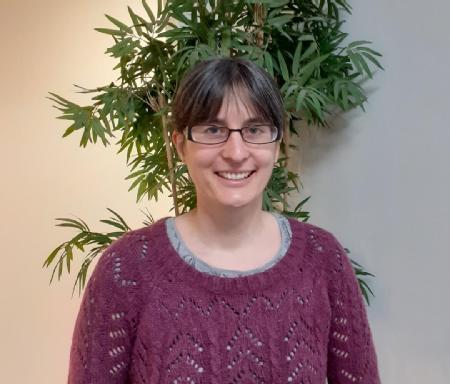Research Software Engineer’s project to create more sustainable research software
· R is a free software environment for data-analytic computing and graphics, it is valuable to researchers across domains, but its contributor base is declining.
· Predominantly privileged academics currently work on its development, but with many retiring, the R project is becoming harder to maintain.
· The RSE project will foster the next generation of R project developers, creating a more sustainable and inclusive base for the future.
An EPSRC Research Software Engineer Fellowship has been awarded to Dr Heather Turner, from the Department of Statistics at the University of Warwick, in which she will establish the role of Research Software Engineers in creating more sustainable and inclusive large-scale software projects.
Currently, many large scientific software projects depend heavily on the research community for their maintenance and development. In the case of R, the free software environment for data- analytic computing and graphics, the core developers have mainly been people in traditional academic roles, such as statistics professors.
As such, their focus has been on aspects of development related to their areas of research, with other necessary functions being done as service. This paradigm has led to a crisis of sustainability for the R project, since there has been insufficient investment in establishing open, sustainable development practices or mentoring new contributors.
Many of the current core developers of the R project are past or nearing retirement, leaving the software project in a precarious situation. Since R is widely used in the development of research software, this is an issue that the research community must urgently address. Thanks to £777k from the EPSRC Research Software Engineer fellowship scheme, Dr Turner’s project will tackle this challenge.
Dr Heather Turner, from the Department of Statistics at the University of Warwick comments: “Through this fellowship, I aim to establish Research Software Engineers (RSEs) as part of the solution to creating more sustainable and inclusive large-scale research software projects. I will demonstrate how RSEs can be critical contributors, by modelling this role in the context of the R project. One aspect will be contributing to the maintenance and development of fundamental code in the R project, either the core R codebase, or important add-on packages. ”
Dr Turner’s project not only aims to build the community of people developing and maintaining R, but also to address the systemic diversity issues, which have favoured contribution from privileged people.
The project will demonstrate how RSEs can help to promote sustainability and inclusion in the R project. This aspect will form a large component of the work and involve vital activities such as making the core development process more transparent, mentoring short-term projects, and providing training.
ENDS
30 APRIL 2021
NOTES TO EDITORS
High-res images available at:
https://warwick.ac.uk/services/communications/medialibrary/images/april_2021/heather_turner_large.jpg
Caption: Dr Heather Turner, Department of Statistics, University of Warwick
Credit: University of Warwick
For further information contact:
Alice Scott
Media Relations Manager – Science
University of Warwick
Tel: +44 (0) 7920 531 221
E-mail: alice.j.scott@warwick.ac.uk
For further information contact:
Alice Scott
Media Relations Manager – Science
University of Warwick
Tel: +44 (0) 7920 531 221
E-mail: alice.j.scott@warwick.ac.uk
